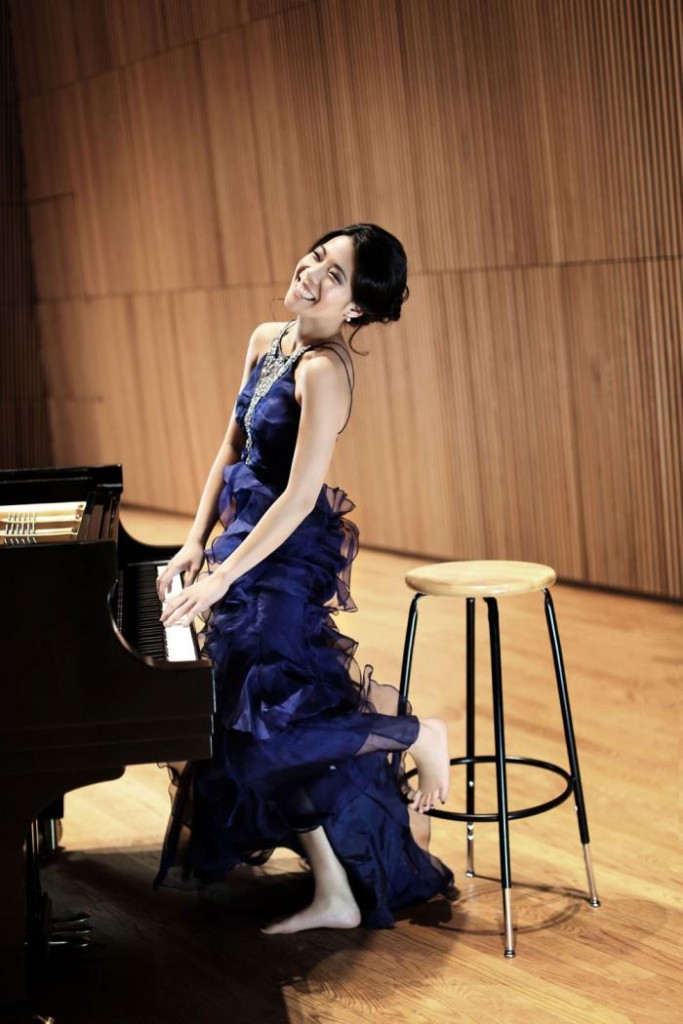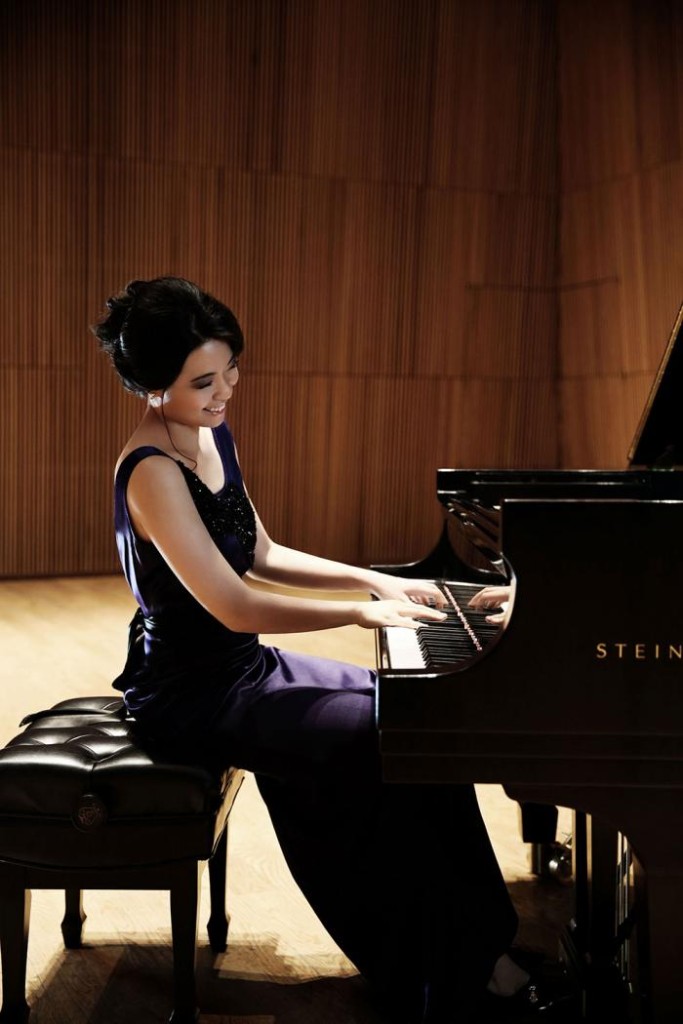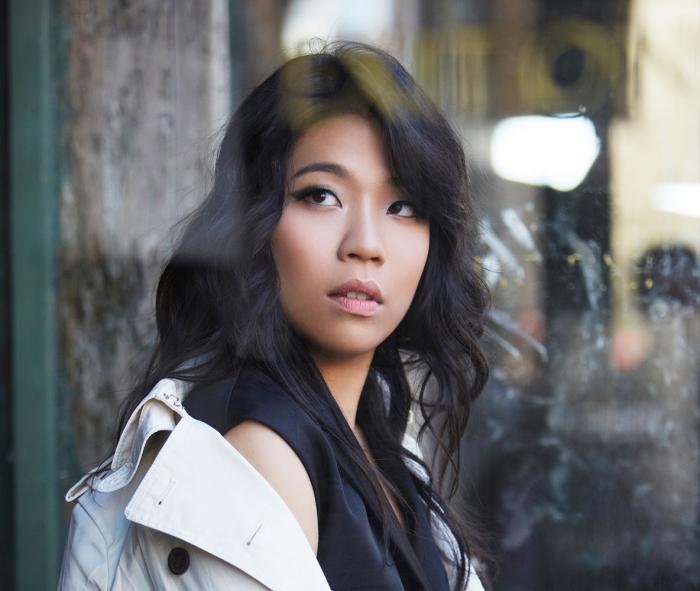By Kurt Loft
. . .
Rachmaninoff is like
‘Preparing for an Ultra-Marathon’
. . .
February 17-26
Tampa, St Pete, Clearwater
Details here
. . .
Joyce Yang hasn’t climbed Mount Everest, but she’ll need plenty of stamina to reach an equally demanding summit over the next two weeks.
Yang will be scaling a musical mountain by performing Rachmaninoff’s Second Piano Concerto and then the Third Piano Concerto in six performances on back-to-back weekends with The Florida Orchestra and Music Director Michael Francis.
“This is a difficult task, one that takes a lot of planning and focus,’’ the 36-year-old pianist says. “I think playing these two concerti over two weekends is only possible because I’ve performed each on separate concerts over the years. If this was my first time performing either one, I couldn’t dare tackle them back to back.’’

TFO scheduled these two popular works in honor of the 150th anniversary of the composer’s birth. Yang performs the Second over the February 17-19 weekend, and the Third a week later. She will need the rest in between.
“Rachmaninoff requires the performer to be mentally sharp and physically fit, because of the extreme technical challenges,’’ she says. “The process of getting ready is similar to an athlete preparing for an ultra-marathon.
“You have to condition your body and mind for a long period of time so you feel ready (and not overwhelmed) when the concert day comes along. It’s important to start ‘waking them up’ early enough so I don’t have to cram at the last minute before the concert.’’

Her six performances are part of an extended marathon. After leaving the Tampa Bay area, she travels to Brazil for multiple performances of the Third, then heads back the United States to play the Second with orchestras in Alabama and Texas. Her schedule also includes concertos by Mozart, Brahms and Grieg.
How does she keep it all fresh, without making the music sound routine?
“I’m always brainstorming new ways to improve my Rachmaninoff concerti,’’ she says. “Most of my practice sessions are spent focusing on small sections, and a week or so before the concert I start running through the whole concerto, making sure I have enough stamina to get through it more than once.
“Each time I revisit them, I want to make them a little better than the last time, so I strive to make the climaxes a little more powerful, technical flurries a little more sharp, and lyrical passages a little more heartfelt.’’
. . .
of Rachmaninoff’s Rhapsody On a Theme by Paganini
Yang lets the music simmer “like a good stew’’ in her mind before she sits at the keyboard. She also tries to look beyond the technical structure of the notes and become emotionally involved in the performance. “There needs to be a balance between the head and the heart. Only then do I feel that I become the protagonist of his narrative, and the music pours out of me.’’
Of the two concertos, the Third is the most demanding, and also offers a choice of two cadenzas. One is a crisp, lighter toccata style – the other longer, chordal and daunting. Yang opted for the latter, known as the Ossia, which means “alternative version.’’
“It’s much more difficult to perform, and has a darker tonality, large, powerful octaves and a deep, rich sound,’’ she says.
“This is an amazing moment for the pianist. It’s a big climb to the top, and when you get there, it doesn’t end there, as the energy only rises and it keeps going until the breaking point. It’s a very exciting moment.’’
. . .
and grand pauses that change the musical landscape
Exciting moments have been part of Yang’s life since her first piano lessons at age 4 in her hometown of Seoul, South Korea. At 10, she entered the Korea National University of the Arts, and in 1997 moved to the United States to attend the Juilliard School of Music, where she won the Arthur Rubinstein Prize.
In 2005, she claimed the silver medal in the Van Cliburn International Piano Competition, and was a subject in the documentary about that contest, In the Heart of Music. The following year she made her New York Philharmonic debut before joining the orchestra on its celebrated tour of Asia.
Like most concert pianists, she memorizes her repertoire, which ranges from classical-era to contemporary works. But the heft of her material is Romantic, and lots of the guy who continues to swoon audiences – Rachmaninoff.
“I think the power of Rachmaninoff’s music is his nostalgic melodies and the emotional arc of his music,’’ she says. “His timeless melodies unlock people’s most cherished memories and his incredible climaxes allow everyone to experience the immediacy and power of music.’’
. . .
. . .
Rachmaninoff’s Piano Concerto No. 2
February 17-19
Details here
. . .
Rachmaninoff’s Piano Concerto No. 3
February 24-26
Details here
. . .
Originally published in the Florida Orchestra Blog




